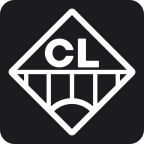In recent years, the application of ultra short pulse (USP) lasers is becoming more and more extensive. In the range of picosecond or femtosecond, pulsed laser can ablate even the hardest material, and can reach the precision of micrometer level.
At present, the average output power of the ultrashort pulse laser on the market has reached several hundred watts, and the latest research and development focus has come to how to make it better applied. For many years, Fraunhofer ILT has been studying this problem.

By adjusting the beam profile and multi beam method, the power of USP laser can be used efficiently (picture source: Fraunhofer ILT)
Create fast, accurate and flexible beam shaping technology
In addition to various ultrashort pulse lasers, Fraunhofer ILT's team also has the latest high-performance liquid crystal modulator for beam shaping in laser material processing. Using the liquid crystal modulator, researchers can freely program the beam profile of the laser with high time resolution, but can also split into identical copies.
These modulators can withstand laser power up to 150 watts. In the EU project "Deformation (METAMORPHA) - measuring micromachining with laser beams customized for amplitude and phase", two modulators are connected in an optical module. This module can be used alone or as a multi beam column shape, and is compatible with various machines, such as 3-axis machine/5-axis machine, lathe or chemical mechanical polishing machine (roll to roll).
Realizing zero defect production with machine learning
It is reported that one of the main advantages of the liquid crystal modulator is that the beam shape can be "deformed" more than 60 times per second, so it is possible to optimize the processing process or even change the process in a closed control loop.
When this quality is combined with inline process monitoring and intelligent control, zero defect manufacturing may become a reality. To this end, the process is continuously monitored and regulated by an intelligent control system. Then it uses machine learning to optimize process parameters and process strategies to produce completely defect free parts. After the corresponding learning stage, the process can also be simulated and the best process parameters can be determined in advance.
The main purpose of the project is to save a lot of energy and resources in production, which is of particular interest to the three industrial partners of the project - Ceratizit, a milling insert manufacturer, ThyssenKrupp, a steel heavy industry giant, and Philips, a home appliance giant. All of their laser based manufacturing methods will be included in the plan, which will promote great progress in sustainable and economical production.
During the research and implementation of the project, a system module containing all details will be tested in three applications with major industrial partners, with the goal of achieving at least 30% energy saving compared with traditional processes.
At ThyssenKrupp, lasers will be used to construct embossing rolls. At present, these are all operated by EDM, which consumes more than 10 GWh of energy every year, and the laser is expected to save 90% of it. In addition, the service life of the embossing roller may be increased by ten times after the precise recombination of the worn surface by using the laser.
Ceratizit plans to use laser based processes to manufacture carbide punching and stamping dies and repair worn tools. The photonic process chain will make this process faster and more economical.
Philips hopes to greatly simplify the manufacturing of products in the consumer sector by using general-purpose laser processing heads.
About EU project METAMORPHA
METAMORPHA project partners hope to collect the latest laser technology, process knowledge and control knowledge to replace the existing wet chemical etching and other processes, so as to greatly save energy and resources. It is also an important step towards sustainable utilization of resources and environmental protection to reprocess tools by laser material processing. The project will be launched on September 1, 2022 and funded by the European Union for a period of four years. The project partners include: Germany Fraunhofer Laser Technology Research Institute (coordinator), Aachen University of Technology, LASEA, Valencia University of Technology, Datapixel, fentISS, Arditec, Vivid Components, Ceratizit, ThyssenKrupp, Philips.
Source: OFweek








